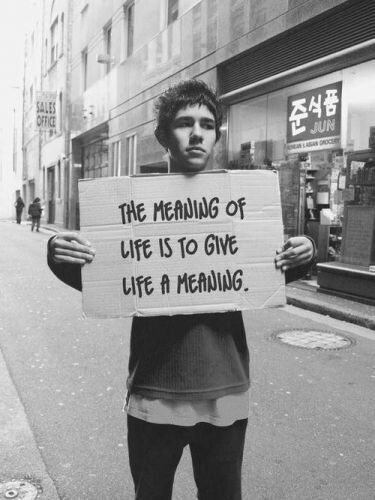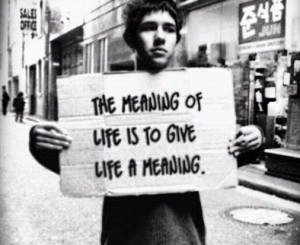
Don’t Aim at Success
 “Don’t aim at success. The more you aim at it and make it a target, the more you are going to miss it. For success, like happiness, cannot be pursued; it must ensue, and it only does so as the unintended side effect of one’s personal dedication to a cause greater than oneself or as the by-product of one’s surrender to a person other than oneself. Happiness must happen, and the same holds for success: you have to let it happen by not caring about it. I want you to listen to what your conscience commands you to do and go on to carry it out to the best of your knowledge. Then you will live to see that in the long-run—in the long-run, I say!—success will follow you precisely because you had forgotten to think about it” ― Viktor E. Frankl, Man’s Search for Meaning
“Don’t aim at success. The more you aim at it and make it a target, the more you are going to miss it. For success, like happiness, cannot be pursued; it must ensue, and it only does so as the unintended side effect of one’s personal dedication to a cause greater than oneself or as the by-product of one’s surrender to a person other than oneself. Happiness must happen, and the same holds for success: you have to let it happen by not caring about it. I want you to listen to what your conscience commands you to do and go on to carry it out to the best of your knowledge. Then you will live to see that in the long-run—in the long-run, I say!—success will follow you precisely because you had forgotten to think about it” ― Viktor E. Frankl, Man’s Search for Meaning
In this rare clip from 1972, legendary psychiatrist and Holocaust-survivor Viktor Frankl delivers a powerful message about the human search for meaning — and the most important gift we can give others.
This video was created for a graduate-level Theories of Counseling Psychology course at The University of Texas at Austin. Its intent is to provide some insight into Viktor Frankl’s life and his work in Logotherapy.
Discovering Meaning
Article Excerpt: “Logotherapy is composed of three basic principles. The first basic principle is that life has meaning in all circumstances, even despondent ones. The second principle is that the main motivational force is the desire to find meaning in life. Lastly, the third basic principle states that humanity has the freedom of attitudinal choice, even in situations of unchangeable affliction (Frankl, 1959). Thus, Frankl purports that people can discover meaning through creative, experiential, and attitudinal values (Hatt, 1965). Creative values consist of achievement of tasks such as painting a picture or tending a flowerbed (Boeree, 2006). Experiential values consist of encountering another human, such as a loved one, or by experiencing the world through a state of receptivity such as appreciating natural beauty (Hatt, 1965). Attitudinal values speak of the potential to make meaningful choices in situations of suffering and adversity (Gelman & Gallo, 2009). Frankl contends that everything can be taken away from a person but the freedom to choose one’s attitude (Frankl, 1959). He stressed that people should not suffer unnecessarily in order find meaning but that meaning was possible when suffering is inevitable. For example, a person subjected to an incurable disease or placed in a concentration camp can still discover meaning even though his or her situation seems dire (Hatt, 1965). Moreover, tragic optimismmeans that people are capable of optimism in spite of the tragic triad. Frankl believes that all humans will be subjected to the tragic triad, which consists of guilt, death, and unavoidable suffering (Ponsaran, 2007).”
Related Links:

